College of Human Sciences
MPHO NGOEPE AND NAPJADI LETSOALO | Unisa plays its part by supporting linguistic diversity
The report by the Cultural, Linguistics and Religious Rights Commission about organs of state failing to equitably use all official languages is highly alarming. Despite the existence of the Use of Official Languages Act 12 of 2012, which was enacted to regulate and monitor the utilisation of official languages by the national government for its various functions, the effective implementation of language equality remains a significant challenge in several government sectors, such as schools, courts, and even social spaces.
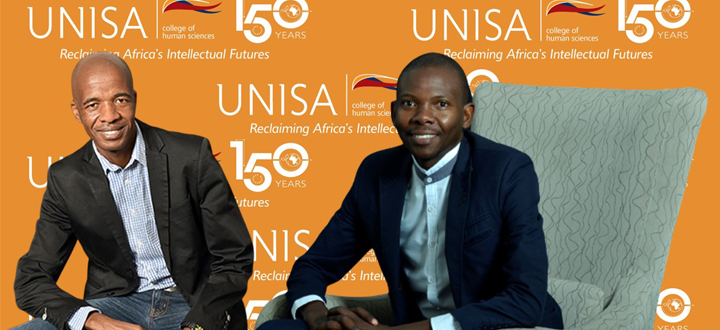
Prof Ngoepe, and Dr Letsoalo are academics at the University of SA
The failure to ensure equal access to government services and opportunities in all official languages raises concerns about linguistic inclusivity, cultural preservation, and the promotion of social cohesion. This act, gazetted in April 2013, was expected to address the longstanding issue of language disparities. However, a decade later, reports continue to highlight the persistent lack of equitable use of official languages by the government.
This reflects a disconnection between policy intentions and practical outcomes. It is also not surprising that governmental bodies could not even comply with translation of section 14 manuals to at least three official languages in terms of the Promotion of Access to Information Act.
More so, it was not surprising with the results of reading for comprehension that out of the 32 countries with comparable trend data between 2016 and 2021, a decline in reading outcomes was seen in 21 countries including SA. The results show that 81% of our grade 4 learners cannot read for meaning.
This shows that SA’s reading crisis is worsening. One way of improving the ability to read is to read a lot. Unfortunately, when it comes to indigenous African languages, it has been indicated that only 2% of children’s books published commercially in SA are in these languages, yet 80% of the population speak a home language other than English or Afrikaans, which dominate publications.
To make matters worse, the published stories in English are mostly not relatable enough to SA’s majority. It is essential to examine the underlying reasons for the gap between policy and implementation and identify potential barriers, including limited resources, inadequate language training, and a lack of awareness and commitment from government officials.
Efforts should be made to enhance language policies, provide necessary resources, and foster a culture of language diversity within government institutions. By addressing these challenges, SA can move towards a more inclusive and linguistically vibrant society, where all citizens have equal access to opportunities and can express their identities in their preferred official languages.
Universities are not spared as they are expected to capacitate society including teachers to be able to teach in all official languages. The University of SA (Unisa)has embarked on several projects for parity of esteem for all official languages, as well as promotion of multilingualism to assist at elementary and tertiary level. The projects are proactive steps to address language disparities, particularly in the realm of education.
We believe it is necessary to start at elementary level for a Sesotho sa Leboa adage reckons ‘sepa la mpša le dubja le sa le semetseng, la omelela le a hlaba (bend it while it is still wet). Having identified the problem of reading at elementary level and paucity of books for children in indigenous languages,
Unisa realised a sense of duty to the country’s children, their families, and educators by introducing awards in children’s literature with the view for publishing quality books. As others tackle the mechanics of reading and literacy, the Unisa awards encourage reading for pleasure and contribute to the availability of a far wider choice of quality children’s literature.
By encouraging the love for writing children’s literature in indigenous languages, these awards will contribute to a positive reading culture and enable children to access a wider range of engaging and enriching literature in their preferred languages. Through these endeavours, Unisa strives to support linguistic diversity, enhance educational opportunities, and empower children by fostering a love for reading.
By addressing the scarcity of books in indigenous languages and promoting multilingualism, Unisa's initiatives contribute to nurturing a literate and culturally enriched society, where children have ample opportunities to explore literature, expand their horizons, and celebrate their linguistic heritage.
Read the original article here.
Publish date: 2023-05-31 00:00:00.0
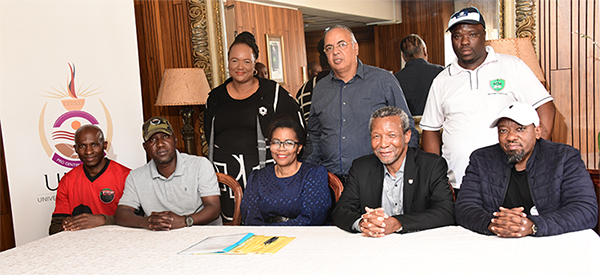
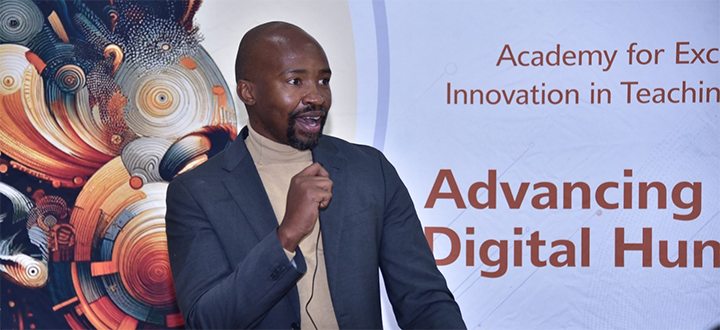 Unisa launches unique digital humanities initiative
Unisa launches unique digital humanities initiative
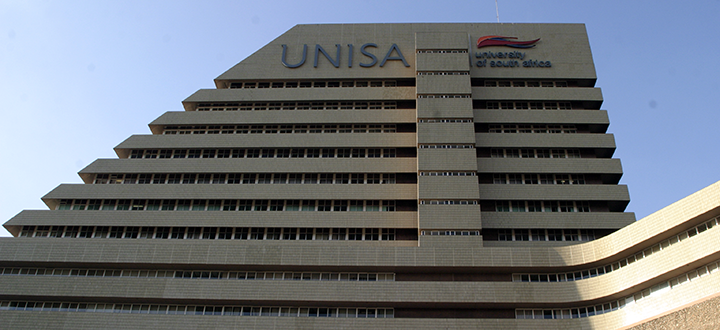 Unisa attains second position among SA universities for research excellence
Unisa attains second position among SA universities for research excellence
 Unisa Catalytic Niche Area Research Symposium seeks to demystify misconceptions about expectations and research in the CNAs
Unisa Catalytic Niche Area Research Symposium seeks to demystify misconceptions about expectations and research in the CNAs
 Unisan's input key to successful National Risk Report
Unisan's input key to successful National Risk Report
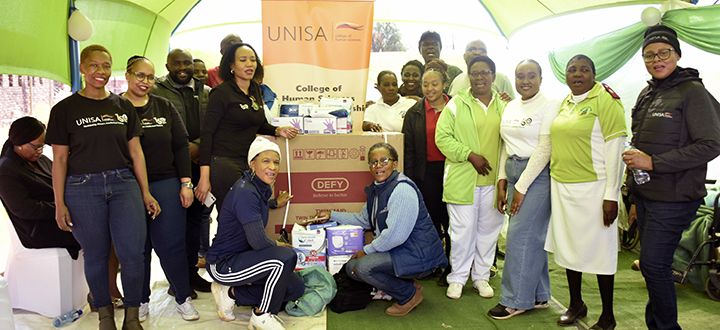 Unisans commemorate Mandela Day with the elderly
Unisans commemorate Mandela Day with the elderly